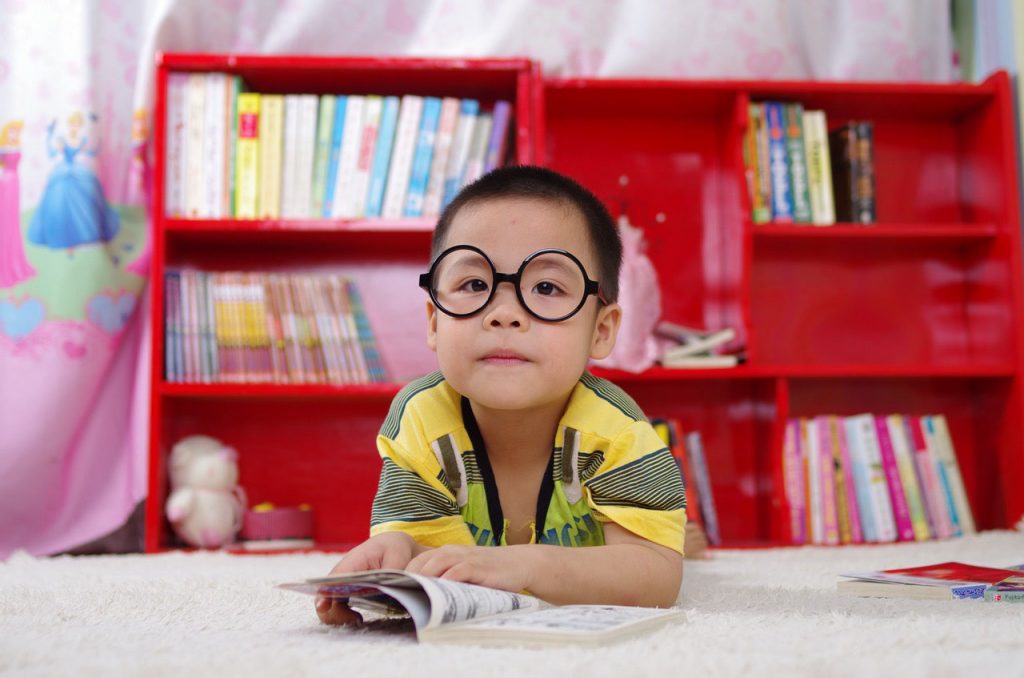You may be concerned about your child’s competence with her ABC’s and 123’s. Well, you can relax! Your preschooler doesn’t need to master reading, writing, or basic math before she goes to kindergarten. Preschool is a time for preparing your child to learn these concepts.
As with infants and toddlers, reading to your preschooler every day is the single most important thing you can do to prepare her to read.
An Active Role in Reading
When a child becomes a preschooler, she should have a more active role during reading time. As you read a book, point to each word, and talk about how the book is arranged. Show her that the title of the book, the name of the person who wrote the book, and the name of the person who drew the pictures appear on the book’s cover. Show her that stories start at the beginning, books are read from left to right, and that words are read from the top of the page to the bottom. Explain that a story has a beginning, a middle, and an end.
Ask your preschooler to look at the pictures and tell you what is happening in the story. Have her guess what will happen next before you turn the page. Read the same books many times, and ask your preschooler to read some of the words with you after she has memorized them. Point to a particular word without reading it aloud, and ask her to guess the word. After she has learned a word from sight, show it to her in other places (other books, signs, cards, labels, etc.). Read to her whenever she asks, and make reading an enjoyable, relaxing activity.
Learning at Her Special Pace
It is important to understand that every child is unique, and learns at her own pace. Some children will learn to read simple words and books before they go to kindergarten, while others may not learn to read until much later. Your reading time should encourage, not force, your preschoolers’ emerging literacy skills.
Words Everywhere!
To further encourage preschoolers’ literacy skills, create an environment that is rich with print. Label objects with clearly printed, large words on index cards or paper. This will help your preschoolers associate words with the objects in the environment. Make or find a picture to match every activity on your posted daily schedule. Place a picture with words on storage bins. For example, place a piece of paper with the word “crayons” next to a picture of crayons on the crayons storage bin.
Do not make flashcards for your preschoolers. Labeling real-life objects is a much more meaningful and effective way to teach the alphabet and printed words.
Talk to Me!
Studies have shown that we learn most from our peers. Boost your preschoolers’ emerging literacy skills by encouraging them to talk with each other. Provide dramatic play areas in your classroom or home. In the art area, place two easels side-by-side instead of back-to-back. This will encourage two children to paint next to each other, giving them the opportunity to talk to each other while working.
Conversations increase your preschoolers’ vocabularies. Talk with your preschoolers often. Start conversations with open-ended questions or statements, such as “How did you do that?” “Tell me more!” “How does this work?” “What were you playing?” “What’s your favorite part of the story?” or “What do you think will happen next?” This gives your preschooler practice with stringing words together to express feelings and ideas.
When your preschooler has trouble finding the right words. Help him by offering new words as suggestions. Repeat what he has said back to him, and further explain the meaning of his words. Repeating what he says will give him a better understanding of his words. It will also make him feel understood. Everybody wants to be heard! All people feel understood when they hear their own words repeated. Give your preschoolers this gift as often as you can.
Ask your preschooler to draw a picture and tell you about it. As he describes what is happening in the picture, write down every word he says. Tape or staple his words to the picture, and read them to him frequently. This will also help him to connect written words to spoken words.


